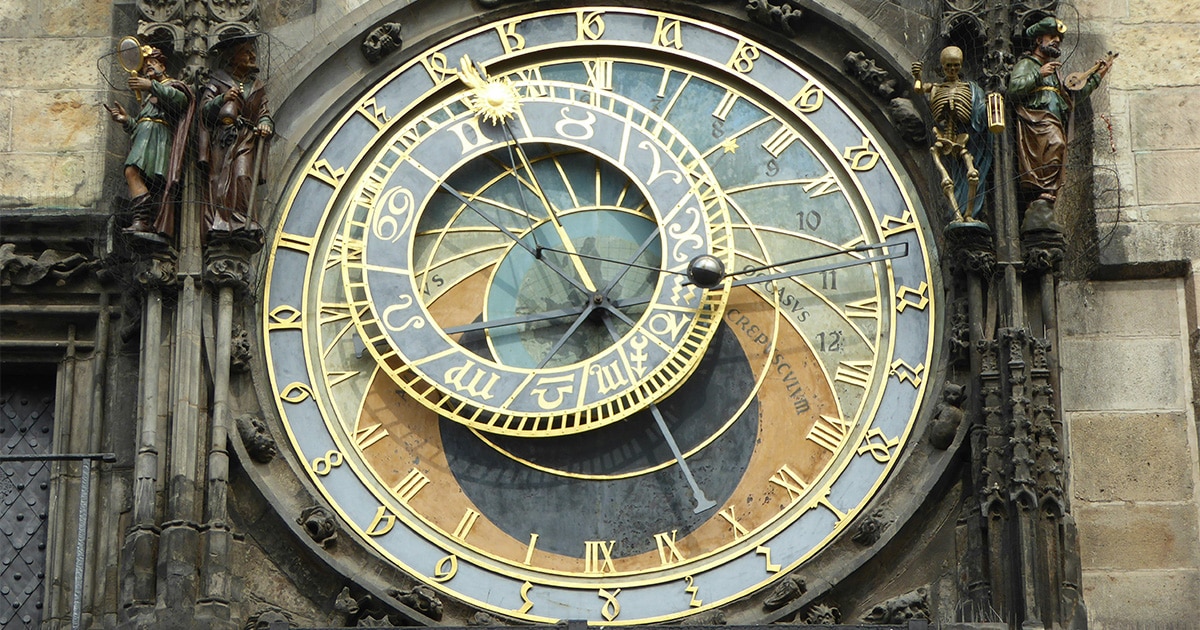Astrology has been a topic of fascination and debate for centuries. Some view it as a legitimate science, while others dismiss it as mere pseudoscience.
But what exactly is astrology, and why is it considered by many to be a pseudoscience? In this blog post, we will delve into the world of astrology, exploring its history, its place in different cultures, and the underlying astrological system.
We will also explore the concept of pseudoscience, defining it and providing examples to better understand its characteristics. Finally, we will examine the reasons why astrology is often labeled as pseudoscience, including the lack of empirical evidence, inconsistencies in astrological predictions, and criticisms from the scientific community.
Join us as we embark on a journey to uncover the truth behind astrology and its classification as either a science or a pseudoscience.
Understanding the Basics: Astrology and Pseudoscience
Astrology and pseudoscience are two terms that are often intertwined but hold distinct meanings. In order to fully grasp the topic at hand, it is crucial to understand the basics of both astrology and pseudoscience.
Astrology, at its core, is the belief that celestial bodies, such as the sun, moon, planets, and stars, have a significant influence on human behavior and the events that occur on Earth. It is based on the idea that there is a connection between the positions and movements of these celestial bodies and the patterns observed in human lives.
Pseudoscience, on the other hand, refers to a belief system or methodology that claims to be scientific but lacks the key elements of the scientific method. It involves presenting ideas or theories that are not supported by empirical evidence, rigorous experimentation, or peer-reviewed research.
In the context of astrology, the debate arises because astrology often fails to meet the criteria of a scientific discipline. While astrology has been practiced for centuries and holds a significant cultural and historical value, its claims and methods have been heavily criticized by the scientific community.
By understanding the fundamental concepts of astrology and pseudoscience, we can now delve deeper into the history of astrology, its prevalence in different cultures, and the underlying astrological system. This exploration will shed light on the reasons why astrology is often classified as pseudoscience. Join us as we embark on an enlightening journey through the intriguing world of astrology and its classification as a scientific or pseudoscientific endeavor.
What is Astrology?
Astrology is a complex and multifaceted subject that has captivated human beings for centuries. In this section, we will explore the essence of astrology, its historical roots, its presence in different cultures, and the underlying system that forms its foundation.
History of Astrology
To truly understand astrology, it is crucial to delve into its rich historical background. Astrology dates back thousands of years and has been practiced by numerous ancient civilizations. From the Babylonians and Egyptians to the Greeks and Indians, astrology has played a significant role in shaping their beliefs and understanding of the world.
We will explore how astrology evolved over time, how it intertwined with astronomy, and how it was applied in various aspects of ancient societies. By examining its historical development, we can gain insights into the origins and evolution of astrology as we know it today.
Astrology in Different Cultures
Astrology is not confined to one particular culture or region. It has permeated numerous societies, each infusing its unique perspectives and interpretations. In this section, we will explore how astrology has been embraced and practiced in different parts of the world.
From Western astrology, which is heavily influenced by Greek and Roman traditions, to Chinese astrology with its zodiac system based on animals, and Vedic astrology in India, we will delve into the cultural variations and distinctive features of astrology across different civilizations. By examining these cultural perspectives, we can gain a broader understanding of the diverse ways astrology has been integrated into different societies.
The Astrological System
At the heart of astrology lies a systematic framework that enables astrologers to make predictions and interpretations. This section will explore the core components of the astrological system and how they are used to analyze and interpret celestial influences.
We will discuss the zodiac signs, the twelve houses, the planets, and their respective meanings and attributes within astrology. Additionally, we will delve into the techniques used in astrology, such as horoscope casting, birth charts, and astrological aspects. By understanding the fundamental elements of the astrological system, we can gain insights into how astrologers make predictions and draw conclusions about individuals’ lives and destinies.
Through the exploration of the history of astrology, its presence in different cultures, and the underlying astrological system, we aim to provide a comprehensive overview of what astrology truly encompasses. Join us as we continue our journey into the depths of astrology and unravel the intricacies of this ancient practice.
What is Pseudoscience?
In order to understand why astrology is often labeled as pseudoscience, it is essential to define and explore the concept of pseudoscience itself. In this section, we will delve into the characteristics of pseudoscience, provide examples of pseudoscientific beliefs and practices, and discuss the distinction between pseudoscience and genuine scientific endeavors.
Defining Pseudoscience
Pseudoscience refers to a belief system or methodology that presents itself as scientific but lacks the rigor and integrity of genuine scientific inquiry. It involves making claims that are not supported by empirical evidence, logical reasoning, or rigorous experimentation.
We will examine the key features that differentiate pseudoscience from legitimate scientific disciplines. These features may include the absence of testable hypotheses, reliance on anecdotal evidence, failure to undergo peer review, and resistance to critical evaluation.
Examples of Pseudoscience
To better understand the concept of pseudoscience, we will explore several examples that are commonly recognized as pseudoscientific beliefs or practices. Examples may include astrology, homeopathy, creationism, and certain aspects of alternative medicine.
By examining these examples, we can gain insight into the common characteristics shared by pseudoscientific beliefs, such as the reliance on subjective experiences, the rejection of established scientific principles, and the resistance to empirical testing.
Pseudoscience versus Science
In this section, we will delve into the distinction between pseudoscience and genuine scientific inquiry. We will discuss the scientific method, which involves formulating hypotheses, conducting experiments, analyzing data, and subjecting findings to peer review. We will contrast this with the methodologies employed in pseudoscience, which often lack these essential elements.
Furthermore, we will explore the concept of falsifiability, a fundamental aspect of scientific inquiry. Falsifiability refers to the ability of a hypothesis or theory to be proven false through empirical evidence. We will discuss how pseudoscientific claims often lack falsifiability, making it challenging to subject them to rigorous testing.
By understanding the characteristics of pseudoscience and the distinctions between pseudoscience and genuine scientific endeavors, we can lay the groundwork for examining why astrology is categorized as pseudoscience. Join us as we continue our exploration into the world of pseudoscience and its implications for astrology.
Why is Astrology Considered Pseudoscience?
Astrology has long been a subject of controversy and skepticism, often being labeled as pseudoscience. In this section, we will explore the reasons why astrology is classified as pseudoscience. We will examine the lack of empirical evidence supporting astrological claims, the inconsistencies in astrological predictions, and the criticisms voiced by the scientific community.
Lack of Empirical Evidence
One of the key reasons why astrology is considered pseudoscience is the lack of substantial empirical evidence supporting its claims. While astrologers argue that celestial bodies influence human behavior and events on Earth, scientific studies have failed to provide consistent and reliable evidence to support these assertions.
We will delve into the various studies that have attempted to examine the validity of astrology and explore the shortcomings and limitations of these studies. By analyzing the available empirical evidence, we can gain a deeper understanding of the scientific scrutiny that astrology has faced.
Inconsistencies in Astrological Predictions
Astrology claims to provide individuals with insights into their personalities, relationships, and future events based on the positions of celestial bodies at the time of their birth. However, critics argue that astrological predictions often lack consistency and accuracy. Different astrologers may provide conflicting interpretations and predictions, leading to doubts about the reliability of astrological claims.
We will explore the challenges and inconsistencies in astrological predictions, discussing factors such as the Barnum effect, subjective interpretation, and the lack of standardized methods among astrologers. By examining these inconsistencies, we can better understand why astrology is viewed skeptically by many.
Critiques of Astrology from the Scientific Community
The scientific community has been vocal in its criticism of astrology, often dismissing it as pseudoscience. Scientists argue that astrology does not adhere to the rigorous standards of scientific inquiry, such as testable hypotheses, reproducibility, and falsifiability.
We will explore the critiques voiced by scientists, including the lack of a plausible mechanism for astrological influence, the failure of astrologers to predict or explain significant events, and the absence of a scientific consensus in support of astrology. By examining these criticisms, we can gain insights into the scientific perspective on astrology and its categorization as pseudoscience.
Through an exploration of the lack of empirical evidence, the inconsistencies in astrological predictions, and the criticisms from the scientific community, we can begin to unravel the reasons why astrology is commonly regarded as pseudoscience. Join us as we dive deeper into the debate surrounding astrology and its scientific validity.
The Debate: Astrology as a Science or Pseudoscience
The classification of astrology as either a science or pseudoscience is a subject of intense debate and differing opinions. In this final section, we will explore the arguments presented by both sides, examining the viewpoints that support astrology as a science and those that label it as pseudoscience. Additionally, we will consider the current scientific consensus on astrology.
Arguments for Astrology as a Science
Proponents of astrology argue that it should be recognized as a legitimate science. They contend that astrology incorporates systematic observations, data collection, and analysis, similar to other scientific disciplines. They highlight the historical significance and cultural value of astrology, pointing to its long-standing practice across different civilizations.
Astrology supporters also emphasize the potential psychological and self-reflective benefits of astrology, suggesting that it can provide individuals with a sense of meaning, guidance, and self-awareness. They argue that astrology, when approached with an open mind and used as a tool for personal growth, can have practical applications in understanding human behavior and relationships.
Arguments for Astrology as a Pseudoscience
Critics of astrology assert that it falls into the realm of pseudoscience due to its lack of empirical evidence and scientific methodology. They argue that astrological claims are often vague and open to interpretation, making it challenging to subject them to rigorous testing. Critics also point out the inconsistencies in astrological predictions and the absence of a scientific consensus supporting astrology.
Moreover, skeptics highlight the potential harm that can arise from relying on astrological guidance for important life decisions. They caution against the use of astrology as a substitute for critical thinking, scientific inquiry, and evidence-based decision-making.
Current Scientific Consensus
While astrology has its share of supporters and critics, the prevailing scientific consensus leans towards regarding astrology as a pseudoscience. The scientific community largely dismisses astrology due to its failure to meet the standards of scientific inquiry, such as reproducibility, falsifiability, and empirical evidence.
Scientists argue that the astrological system lacks a plausible mechanism of action and fails to provide consistent and accurate predictions. They emphasize the need for rigorous testing and controlled experiments to support any claims made by astrology.
However, it is important to note that scientific consensus can evolve over time as new evidence and research emerge. While astrology is currently viewed as pseudoscience by the scientific community, future discoveries may influence the perception and understanding of astrology.
In this section, we have examined the arguments presented by both sides of the debate surrounding astrology’s classification as a science or pseudoscience. We have considered the viewpoints supporting astrology as a science, the arguments labeling it as pseudoscience, and the current scientific consensus. By exploring these perspectives, we can gain a holistic understanding of the ongoing debate surrounding astrology’s scientific validity.
As we conclude this blog post, it is essential to remember that personal beliefs and opinions may vary. Ultimately, the decision to embrace astrology as a science or dismiss it as pseudoscience lies with each individual, based on their own assessment of the evidence and arguments presented.







